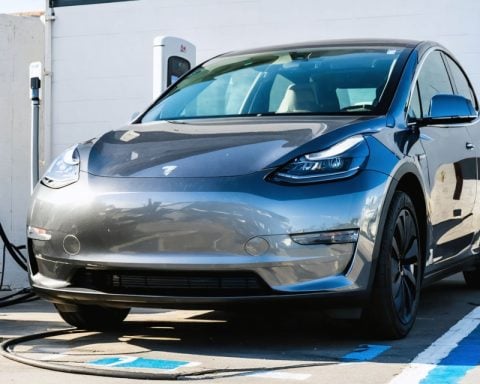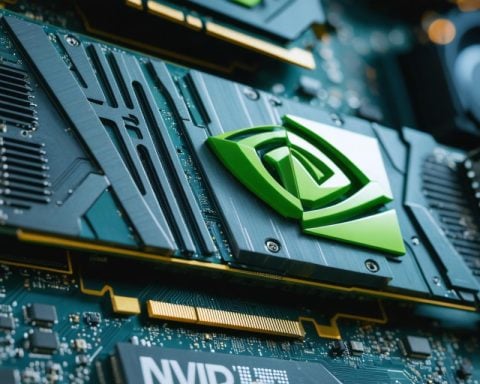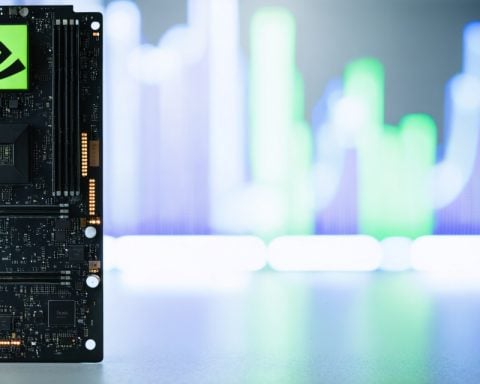- Mercedes-Benz is leading the electric vehicle (EV) race by road-testing an EQS prototype with solid-state battery technology.
- Developed with Factorial Energy, the new solid-state battery enables the EQS to achieve up to 620 miles on a single charge, a 40% increase over traditional lithium-ion batteries.
- Solid-state batteries offer significant advantages, including increased range, reduced weight, and greater efficiency, by using a solid electrolyte instead of a liquid one.
- This innovation not only enhances safety but also allows for the use of advanced anode materials like lithium metal, paving the way for sustainable EV advancements.
- Mercedes-Benz’s initiative signals a major step towards a future of limitless electric mobility, emphasizing the brand’s commitment to clean and efficient driving.
Mercedes-Benz surges ahead in the electric vehicle race, firing the imaginations of tech enthusiasts and eco-conscious drivers alike. The storied automaker has embarked on a groundbreaking journey by road-testing a prototype EQS equipped with a revolutionary solid-state battery, developed in collaboration with the innovative U.S.-based startup, Factorial Energy.
Picture this: gliding through Stuttgart on a single charge, the EQS promises an astonishing range of up to 620 miles on the WLTP cycle—a potential leap of up to 40 percent more than its lithium-ion predecessor. Imagine the freedom of crossing state lines with plenty of juice to spare, all thanks to a powerful, compact battery that fits seamlessly into the existing framework of the car.
Solid-state batteries are poised as the vanguards of future mobility. They’re not just redefining range but also delivering unparalleled benefits in weight, packaging, and efficiency. By ditching the liquid electrolyte for a solid one, the EQS achieves these advancements without adding bulk or weight, making traditional lithium-ion packs look almost antiquated.
Beyond numbers and capabilities, this solid-state milestone represents a narrative of safety and possibility. A solid electrolyte not only enhances safety but also opens doors for new anodes such as lithium metal, promising a brighter, more sustainable future for electric driving.
Mercedes-Benz’s daring foray isn’t just an engineering triumph; it’s an invitation to imagine a world where electric vehicles aren’t limited by range. With solid-state technology, the horizon beckons on a longer, cleaner, and more efficient road ahead. The message is clear: the future of driving is electric, and Mercedes-Benz aims to lead that charge.
Mercedes-Benz EQS with Solid-State Batteries: The Electric Future Unveiled
How-To Steps & Life Hacks
1. Optimize Range: Utilize eco-driving modes in solid-state battery vehicles to maximize range. Engage features such as regenerative braking to extend the battery life effectively.
2. Efficient Charging: Invest in high-quality charging infrastructure at home to take full advantage of the rapid charging capabilities generally associated with solid-state batteries.
3. Battery Management: Regularly update vehicle firmware to ensure optimal battery management and performance diagnostics for the EQS.
Real-World Use Cases
Real-world use cases for the Mercedes-Benz EQS with solid-state batteries will likely see the model being a favorite for long-distance commuting, given its unparalleled range. Fleet operators could leverage the model’s efficiency for intercity travels, significantly reducing downtime for recharging.
Market Forecasts & Industry Trends
According to a Market Data Forecast report, the global solid-state battery market is projected to grow at a CAGR of over 30% from 2023 to 2030. Major automakers like Toyota and BMW are also investing heavily in this technology, indicating a market-wide shift toward solid-state solutions MarketsandMarkets.
Reviews & Comparisons
Comparatively, the solid-state Mercedes EQS prototype outpaces current leading electric vehicles like the Tesla Model S Plaid in range, albeit as a concept vehicle. Expert reviews highlight the EQS’s advanced technology and performance potential as a significant industry leap.
Controversies & Limitations
Despite their advantages, solid-state batteries face challenges such as high production costs and scalability concerns. The technology’s long-term reliability is still under scrutiny, as widespread commercial deployment is in development.
Features, Specs & Pricing
Solid-state versions of the EQS are expected to feature advanced safety capabilities, potentially higher top speeds due to lighter battery configurations, and might include more interior space due to optimized battery size. Pricing details remain speculative as official releases have yet to announce production variants.
Security & Sustainability
Safety is a strong suit of solid-state batteries, reducing risks of thermal runaway and enhancing overall vehicle integrity. From a sustainability angle, they use fewer rare-earth materials, aligning with eco-friendly manufacturing processes Mercedes-Benz Official.
Insights & Predictions
Industry experts predict that by 2030, solid-state battery technology could dominate the EV market as enhancements are made in material science and manufacturing techniques. The initial costs are expected to drop as the technology matures.
Tutorials & Compatibility
Compatibility with existing EV infrastructure remains a point of concern. Universally designed connectors and chargers will be essential as the technology becomes mainstream.
Pros & Cons Overview
Pros:
– Remarkable driving range
– Enhanced safety features
– Potential for faster charging and energy efficiency
Cons:
– High production and acquisition costs
– Limited availability in the immediate future
Actionable Recommendations
– Early Adopters: Consider leasing before buying to test technology suitability as reliability data accumulates.
– Invest: Investing in solid-state technology-focused ETFs could offer long-term financial growth.
For further insightful reading, connect with foresight resources on pioneering automotive technology through Automotive News.
This transition in battery technology marks a pivotal moment in the EV industry, hinting at a future where electric vehicles dominate roads worldwide, driven by innovation in battery science.













